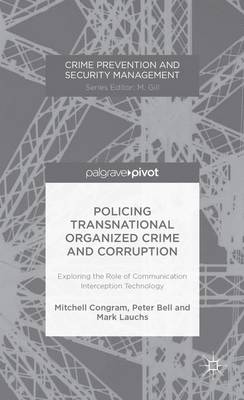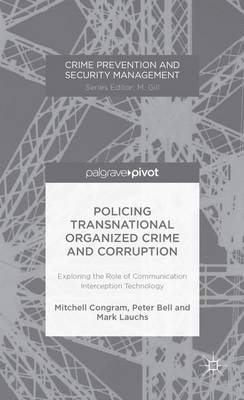Crime Prevention and Security Management
2 total works
Policing Transnational Organized Crime and Corruption
by M. Congram, P. Bell, and Mark Lauchs
Published 21 November 2013
Examining the role of communication interception technology (CIT) in the investigation of transnational organised crime, the authors demonstrate that a proactive intelligence-led policing framework and a re-evaluation of the constraints of CIT are required to combat the international issue of corruption.
Policing Transnational Organised Crime and Corruption
by Mitchell Congram, Peter Bell, and Mark Lauchs
Published 22 November 2013
Technology has advanced in such a manner that the world can now communicate in means previously never thought possible. These new technologies have not been overlooked by transnational organised crime groups and networks of corruption, and have been exploited for criminal success. This text explores the use of communication interception technology (CIT), such as phone taps or email interception, and its potential to cause serious disruption to these criminal enterprises. Exploring the placement of communication interception technology within differing policing frameworks, and how they integrate in a practical manner, the authors demonstrate that CIT is best placed within a proactive, intelligence-led policing framework. They also indicate that if law enforcement agencies in Western countries are serious about fighting transnational organised crime and combating corruption, there is a need to re-evaluate the constraints of interception technology, and the sceptical culture that surrounds intelligence in policing.
Policing Transnational Organised Crime and Corruption will appeal to scholars of Law, Criminal Justice and Police Science as well as intelligence analysts and police and security intelligence professionals.
Policing Transnational Organised Crime and Corruption will appeal to scholars of Law, Criminal Justice and Police Science as well as intelligence analysts and police and security intelligence professionals.

